I Was “California Sober” for a Month—Here’s What Happened
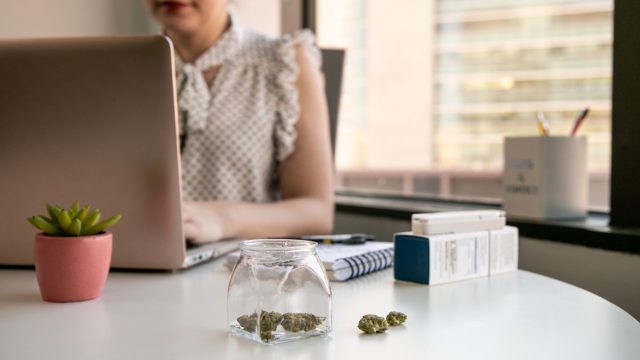
All through the last month, a Post-it Note was stuck to the inside of my front door, where I’d be sure to see it before going out. I’d written it as a reminder to myself that I wasn’t drinking alcohol. “Dry August—you got this!” it said, much to my daughters’ amusement. “Hey mom, you got this!” they’d mock me at any opportunity, the two of them dissolving into giggles. I took it in stride, as anyone with teenagers has probably learned to do. But the fact that I was often high made it that much easier to shrug off their teasing.
That’s right: I gave up drinking for a month, but I wasn’t sober. Rather, I was “California sober.” That meant I was free to indulge in as much cannabis (aka marijuana) as I wanted. Read on to find out what happened when I got sober—California sober.
READ THIS NEXT: The CDC and FDA Just Released a Warning About This Kind of Marijuana.
Drinking alcohol has some serious health drawbacks.
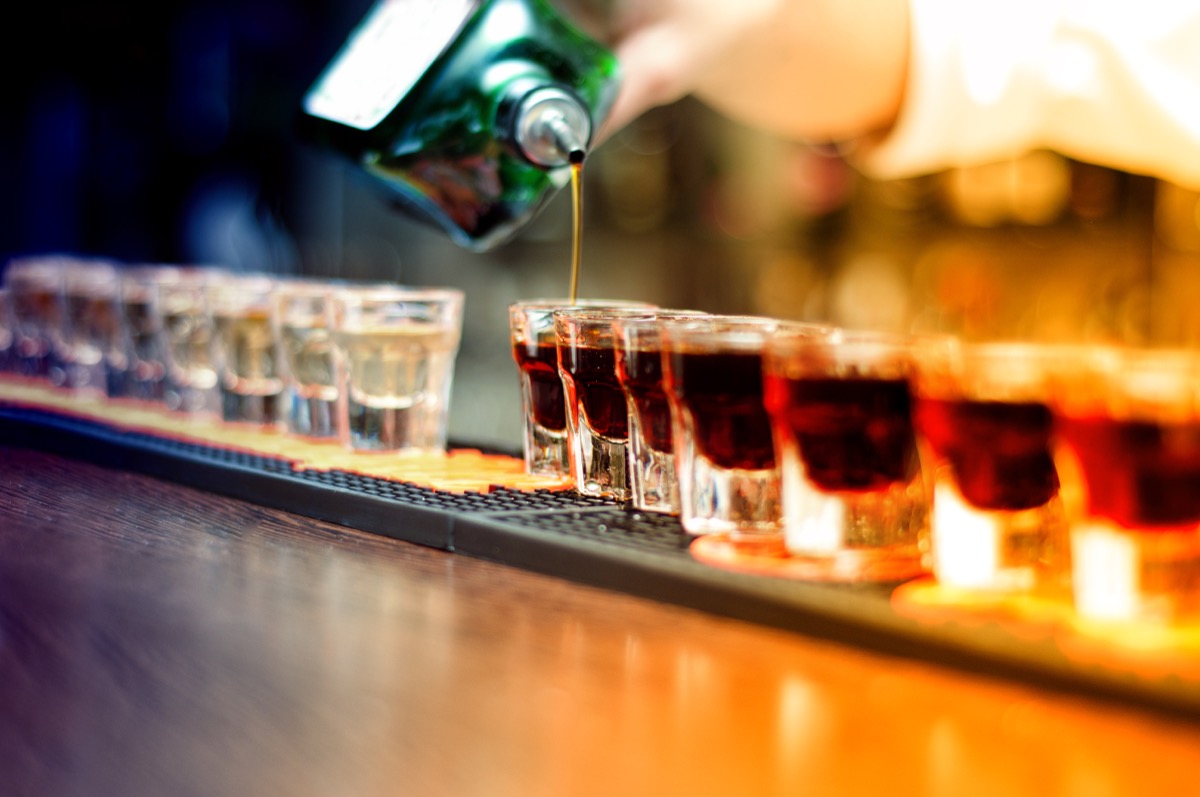
The minute spring breezes melted into summer heat this year, it was on: I was determined to have my own personal Hot Girl Summer. June was only half over—it was not even officially summer yet—when I spent a wild night with friends that started out with rounds of shots and ended with me rolling my ankle dancing in a club. The next day, as I lay on the sofa with my swollen foot elevated, I started to think hard about how much I was drinking, and whether perhaps, now that I’m in my mid-forties, I should consider slowing down.
As a health editor, I’m familiar with the many studies that highlight the potential dangers of drinking. The Centers for Disease Control (CDC) lists an increased chance of breast cancer (along with several other cancers), high blood pressure, heart disease, stroke, a weakened immune system, and dementia as just a few of the long-term health risks of alcohol use. And if I needed another reason to stop, the fact that a couple of my favorite sundresses were feeling a little tight was an added incentive. Alcohol is high in calories, and anytime I’ve stopped drinking for a while, I’ve lost weight.
READ THIS NEXT: Drinking Any of This Popular Beverage Hurts Your Heart, New Study Finds.
Marijuana is becoming more mainstream every day.
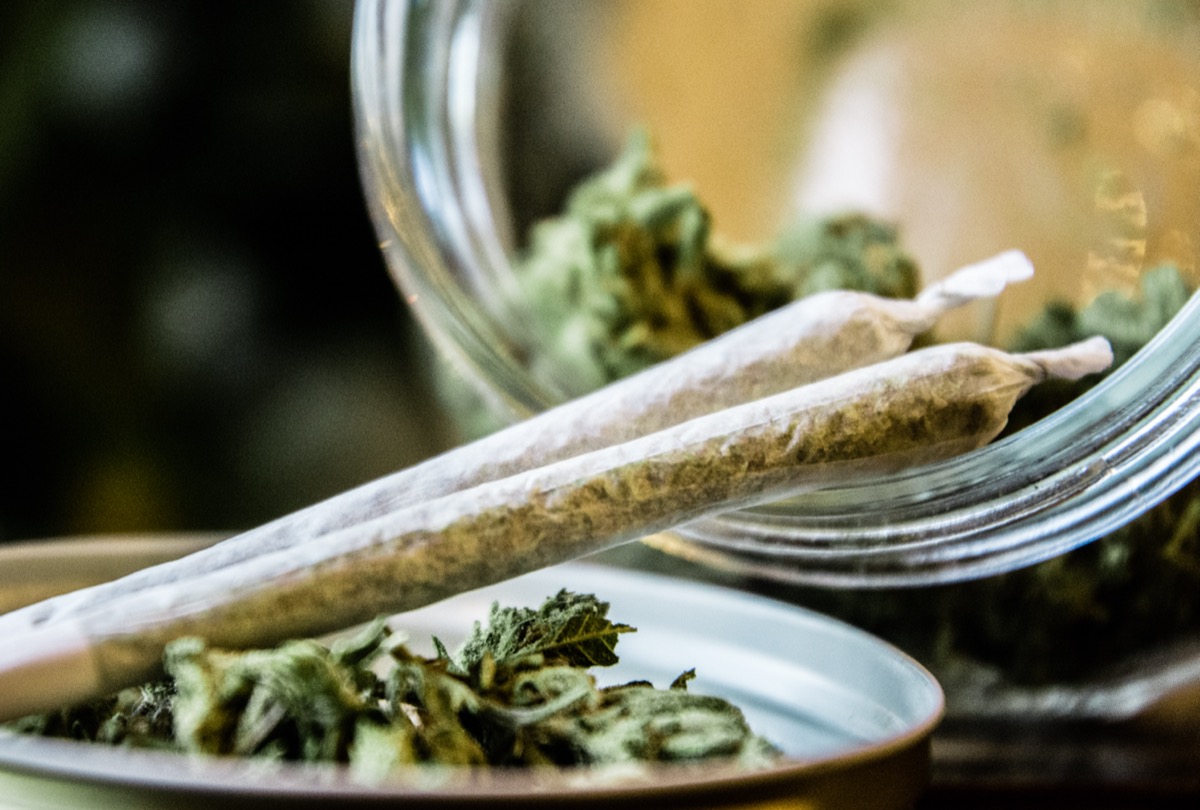
Back when I was in college, I was what you might call a huge nerd. At parties, people would disappear and I’d wonder where they’d gone, only to find out later that they were smoking weed in another room. “Don’t tell Elizabeth, she won’t approve,” I imagined them whispering to each other. And they were right—I was a serious rule-follower, and Nancy Reagan’s “Just Say No” message made a big impression on me at a young age.
These days, however, marijuana has become mainstream. Currently legal in 19 states as well as Washington, D.C., recreational weed use is no longer something to sneak around about. Consequently, I’m much less of a nerd than I once was (at least when it comes to getting high).
Lynn Parodneck, MD, a medical correspondent for TribeTokes, emphasizes the safety of marijuana, especially when compared with booze. “Cannabis is plant-based medicine, meaning it has zero calories and humans cannot overdose from it,” she told me. “Unlike alcohol, which accelerates aging and damages the liver with excess usage, there’s no proof that cannabis causes organ damage in adults (over 25).”
Using marijuana doesn’t have to mean smoking.
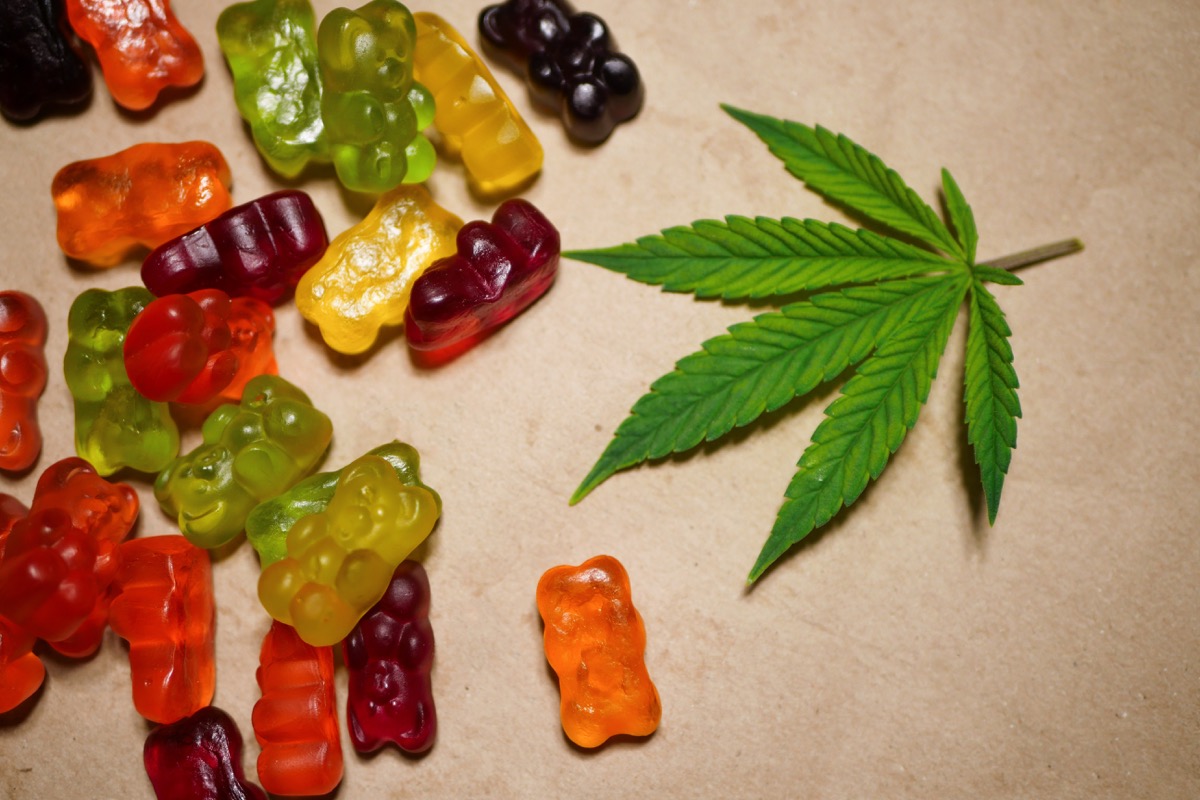
I don’t love smoking—I’m one of those people who can’t stop coughing after someone passes me a joint (I’ll always be a nerd in that way I guess). Luckily, plenty of other options exist for those of us with sensitive lungs. Also luckily, TribeTokes sent me some of their Delta 8 gummy bears to try over the summer. “Consumers should be aware of the quality of the cannabis products they are using and try and keep quantity as low as possible,” says Parodneck. “The products should translate to be as organic as possible, as well as pesticide-free and mold-free, and be verified by a laboratory. TribeTokes is a company that fits this high-quality model.”
On a Saturday evening when I had nothing else on my agenda (listen, Hot Girl Summer gets exhausting in middle age), I broke into my stash. An hour or so after enjoying a delicious sugary gummy bear, I was dancing around my kitchen singing along with the Indigo Girls at the top of my lungs, not a care in the world. (That my daughters weren’t home to witness this was another stroke of luck.)
Soon I was indulging in a gummy every night after work, and several on weekends. During a drive upstate with friends, I rode in the backseat popping edibles and laughing like a maniac, much to their amusement (at least I hope). And when I dropped my younger daughter off at camp in Massachusetts, where recreational marijuana is legal (it’s not yet, in New York) I made a pit stop at a local dispensary and stocked up.
For more health news sent directly to your inbox, sign up for our daily newsletter.
“California sober” can mean a few different things.
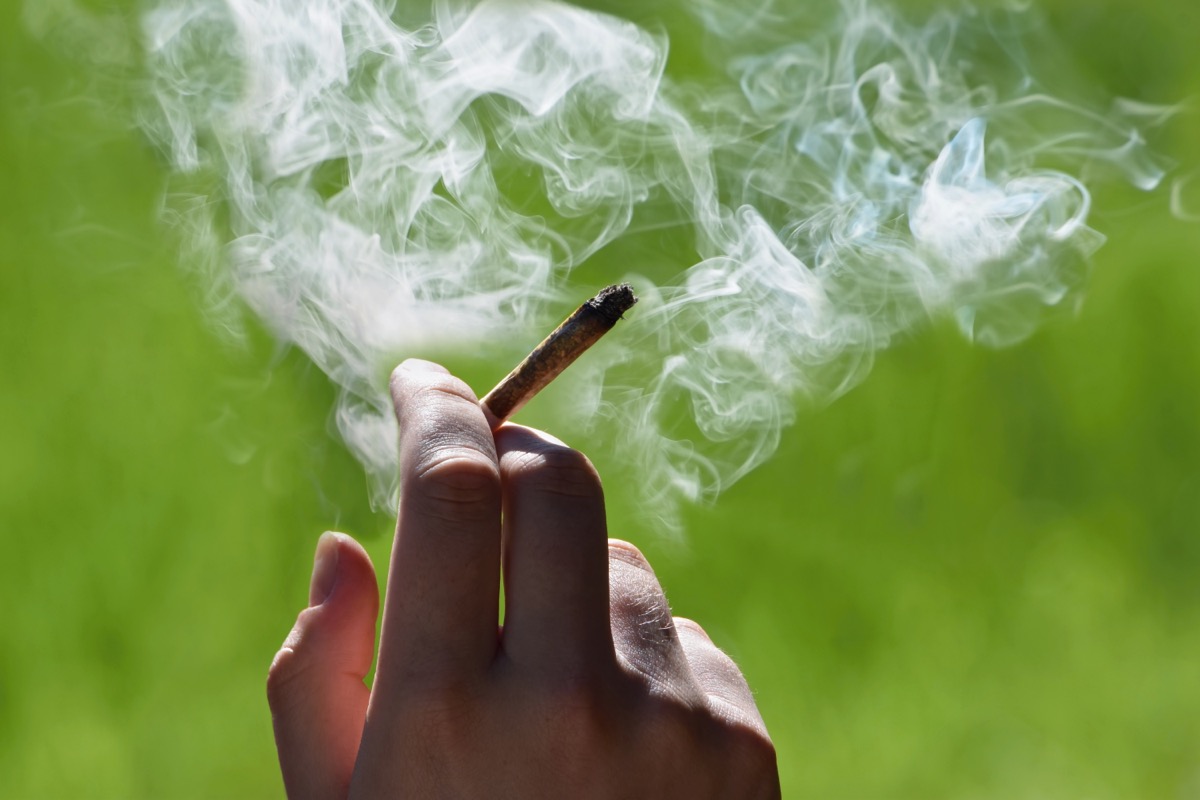
If you’ve never heard the term “California sober,” you’re not alone. Several people, when I told them what I was doing, were unfamiliar. And it’s understandable, especially since people use the phrase in different ways. According to the Cleveland Clinic, for some, being California sober simply means cutting back on alcohol, or abstaining from one vice while embracing another. As Akhil Anand, MD, told the site, “The term is ambiguous and kind of a misnomer. After all, you’re not sober if you’re still using mind-altering substances.”
Fair enough! And here’s where I’ll confess that I did make a couple of exceptions to my dry August/California sobriety: once when I was on a date and couldn’t resist ordering a spicy margarita (okay, two spicy margaritas), and another time on the last night of vacation when we all went out for a fancy dinner. (Once again, a spicy margarita was my downfall.) Other than that, I kept my promise to myself—and surprisingly, I didn’t even really miss the booze.
My month of being California sober brought about a few changes.

Getting high instead of drunk didn’t go completely smoothly. I started having more frequent migraines, and while I can’t say the edibles were to blame, I couldn’t help but note the correlation. (Rubbing Migrastil’s Migraine Stick on my temples did seem to help, along with drinking plenty of water and getting more sleep.) And despite occasional attacks of the munchies, I dropped several pounds without trying, thanks to cutting out those summer cocktail calories.
In general, however, I feel calmer than I did a month ago. I’m a notoriously nervous driver, but on a recent road trip I realized I wasn’t white-knuckling the steering wheel as usual, even when the swarm of traffic coming back into NYC was hair-raising. When I’m not high—which, to be clear, is most of the time—I still feel a sense of peace that I didn’t before, almost as if my brain is being trained to chill out.
Here’s what you need to know about being “California sober.”
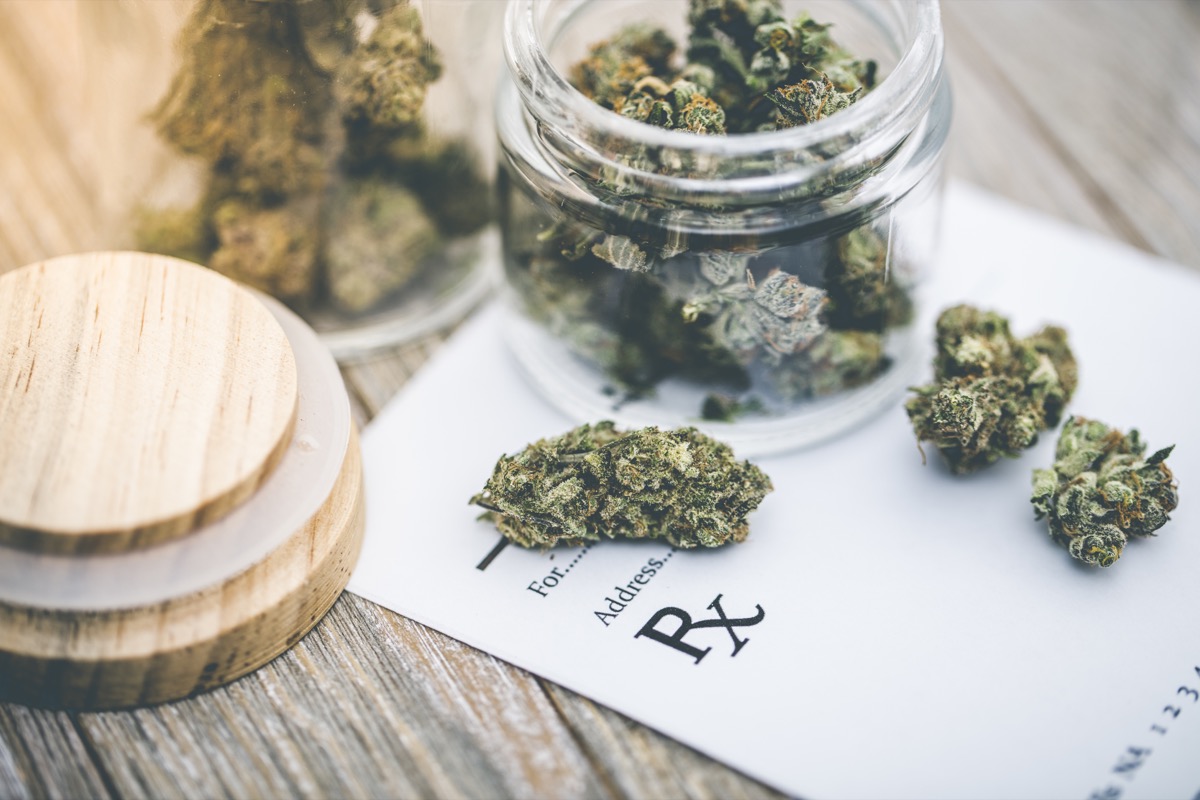
Thinking about trying out a month—or more— of California sobriety yourself? Parodneck cautions that people should “check in with their doctor to see if their existing medications contraindicate cannabis consumption,” and warns that women who are pregnant or breastfeeding should abstain completely from both marijuana and alcohol.
It’s also possible to have too much of a good thing: “Cannabis consumers may need to go on a break to reset their receptors if their consumption becomes ‘too much,'” Parodneck says. “People will develop a tolerance when it comes to long-term cannabis usage. The best way to lower intake would be to take a break. After a month, they can return to cannabis usage, but should keep in mind their dosing patterns.”
As summer comes to a close, I’ll probably relax my rules and have a glass of wine now and then. I also plan to go easy on the gummies for a bit, as Parodneck recommends. I’m glad I tried my California sober experiment, though, and not only because my jeans are fitting better, just in time for fall. (Hot Girl Autumn, here I come…)